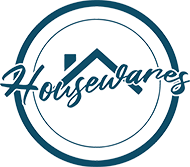You’re looking for a cohesive, focused, goal-oriented team behind you, so the golden rule is: “It’s us, not me” and “It’s our company, not my company”.

Why am I here?
How often do I see staff members wandering into their place of work dreaming about 5pm and what they’re doing after work, instead of thinking, what am I going to achieve today for myself and my employer?
You, the employer, owe it to yourself to make sure each staff member understands why they’re coming to work.
Consider that each staff member is actually working for themselves: they’re self-employed, selling their time to you for a fee. Then go about finding out from them what their goals are and what they’re going to do with the money they earn.
Are they saving for a new phone, a car, a holiday, something else? Once you know this you can find ways to focus them in on their goal, and you’ll see a whole new approach from them to their work.
What is my role as an employee?
Different from a job description, this is about where you as an employee fit into your organisation. Many job descriptions fail to clarify this.
Am I a creator, a handler or a finisher?
Creator: Initiates projects, allocates jobs, sets direction
Handler: Works on projects, carries out jobs, follows directions
Finisher: Hands in projects, completes jobs, reports on progress
What is my job description?
This should clearly outline:
The job you are expected to do
The amount you will be paid for doing the job
Who you report to
Who you are in charge of
Who you are teaming with
The hours you are expected to work
Do’s and don’ts of job description wording:
| Do’s | Don’ts |
| Achieve daily sales targets | Maximise daily sales |
| Ensure that stock is rotated once a week | Ensure all stock is rotated |
| Hold a weekly merchandising skills session | Train and develop staff in the skills of merchandising |
| Log and fix all customer complaints and report results | Deal with complaints from customers |
| Organise ongoing weekly product knowledge training sessions | Train all staff on the product knowledge they require in their jobs |
| Test all staff weekly on their knowledge of company rules and regulations | Ensure all staff conform to company rules and regulations |
How am I managed?
This is a very important issue for employees.
In life we all like to feel appreciated: we like to have direction and we like to be rewarded for the good things we do and we need to be challenged when we do things we need to learn from.
Reviews: A weekly short catch-up with the person you report to
Who reviews me: I need to know in advance who will be monitoring my performance
Employee voice: Can I get to the managing director, am I encouraged to talk directly to the owners of the business about any issues I may want to discuss about the company?
Human resources: Who do I contact regarding discussions about human resources in our company?
Legal issues: Has the company explained to me what my rights are and the process to follow if I wish to seek legal help?
Where to from here?
What opportunities exist for me within the organisation to progress my career path? Statistically, an employee who has a career goal within an organisation is more likely to be focused and productive, whereas someone in a fixed role will tend to become disillusioned and unproductive.
It may well be that a career goal may involve leaving the company and moving to another or abroad. However, employers should never discourage the training and development of any employee, because as one employee leaves then another will take their place, and if the process is clearly defined and achievable then each new employee will take up the challenge.
All employees should have the goal of replacing their managers, and all managers should have the goal of replacing their managers. This is the essence of good leadership.
 Housewares Business-to-business magazine for housewares retailers and their suppliers
Housewares Business-to-business magazine for housewares retailers and their suppliers



